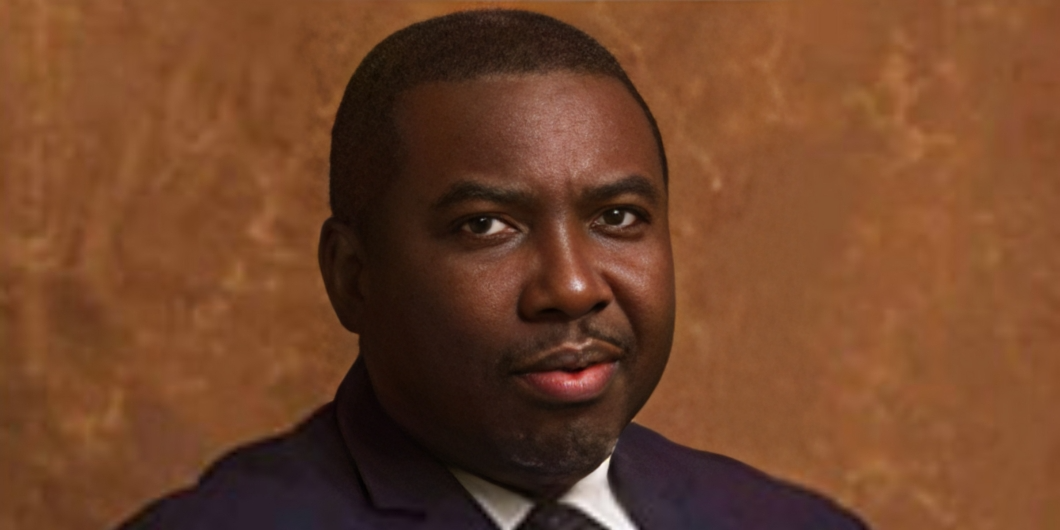Prof. Joash Ojo Amupitan has long been a respected figure in Nigeria’s legal and academic circles. With decades of scholarship, administrative leadership, and commitment to electoral reform, he has now gained national prominence after being nominated by President Bola Tinubu to the chairmanship of the Independent National Electoral Commission (INEC).
To many, his appointment exudes hope of a shift from purely academic and legal influence to leadership in Nigeria’s electoral governance.
RELATED: If you like, appoint your son as INEC Chairman, you’ll lose in 2027 – Dalung tells Tinubu
Who is Prof Joash Amupitan?
Prof Joash Amupitan is a distinguished legal scholar, academic administrator, and public servant who hails from Kogi State. Born in 1967 in Aiyetoro-Gbede, Ijumu Local Government Area, he has built a reputation as a scholar in corporate governance, evidence law, privatisation, and electoral law.
Over the years, he rose through the ranks of academia, held key positions in university administration, and became a Senior Advocate of Nigeria (SAN). Recently, he has been nominated by President Tinubu as the next Chairman of INEC, pending National Assembly confirmation.
RELATED: ‘INEC is a department of APC’ — Kenneth Okonkwo alleges electoral bias
Educational Background
Amupitan came from a family of educators; his mother, Alice Ajigba Amupitan, was an educator and church leader in Kogi state. He earned his LL.B. (Bachelor of Laws) from the University of Jos in 1987.
He was called to the Nigerian Bar in 1988 after completing the Barrister-at-Law program at the Nigerian Law School. He then attained a Master of Laws (LL.M.) from the University of Jos in 1993 and later a PhD in Law from the same institution in 2007. His areas of specialisation include corporate governance, evidence law, privatisation, and reforms in constitutional and electoral law.
RELATED: INEC ready to allow voting without PVC in 2027 elections
Amupitan’s Career Journey Before INEC
Private/Academic Practice
Prof. Amupitan began his career in academia when he joined the University of Jos as an Assistant Lecturer in 1989. Over time, he took on roles such as Head of Department (Public Law), Dean of Faculty of Law, and Chair of the Committee of Deans & Directors.
He also contributed to national debates through publications and research, authoring books, chapters, and journal articles in areas like corporate governance, privatisation, evidence law, and legal reforms.
RELATED: INEC helping APC to hijack upcoming election – Amaechi raises alarm
Public/Institutional Service
Amupitan has served on several institutional boards and governing councils, including the University of Jos Governing Council, Council of Legal Education, and the Governing Council of the Nigerian Institute of Advanced Legal Studies. In December 2023, he was inaugurated as Pro-Chancellor and Chairman of the Council of Joseph Ayo Babalola University (JABU), Osun State.
Editorial/Thought Leadership
While much of his reputation is built from academia and administration, Prof. Amupitan has played roles in legal scholarship, publishing commentaries, supervising doctoral students, and contributing to national legal discourse.
RELATED: ‘Civil war loading?’ – Galadima drags FG over planned INEC chairman appointment
Challenges to Solve for as New INEC Chair
If eventually confirmed as the next INEC Chairman, Prof. Amupitan will inherit many deep-rooted challenges that have long shaped Nigeria’s electoral system. From logistics and funding to voter trust and election security, his tenure will require both administrative innovation and moral courage to reposition the commission for credibility and efficiency.
1) Logistics & Operational Gaps
One of the biggest challenges before Prof. Amupitan will be INEC’s complex logistics network. Nigeria’s vast geography, spanning urban centres, riverine communities, and conflict-prone areas, makes the distribution of election materials a massive chore. Delays in transporting sensitive and non-sensitive materials, vehicle shortages, and coordination issues among field officials have repeatedly stretched election timelines.
He will need to review INEC’s logistics architecture, strengthen partnerships with transport unions, improve real-time monitoring systems, and ensure timely deployment of materials and personnel, especially in remote regions.
2) Funding & Resource Management
Election management is capital-intensive. Prof. Amupitan will have to navigate timely and transparent funding from the federal government while ensuring judicious allocation of resources within the commission. Past elections have seen delays in fund disbursement, creating bottlenecks in planning and execution.
To address this issue, he will need to push for early budget approvals, digital accounting systems, and procurement transparency that enhances public trust. Additionally, the growing use of technology like BVAS and IReV demands sustained investment in infrastructure, maintenance, and training, making financial prudence non-negotiable.
3) Voter Trust & Institutional Credibility
Perhaps the most pressing challenge will be rebuilding citizens’ confidence in INEC. The 2023 general elections left many Nigerians sceptical about the commission’s credibility due to issues such as technical glitches, result transmission delays, and perceived inconsistencies.
Prof. Amupitan’s leadership will be tested on openness, communication, and fairness. He must prioritise institutional reforms that strengthen internal checks, improve real-time communication with the public, and promote transparency in results management. Restoring credibility will not only depend on technology but also on human integrity and accountability within the commission’s ranks.
RELATED: Despite strong opposition, INEC recognises David Mark’s team as ADC leadership
4) Election Security
Security remains a major player in voter turnout and election credibility. Electoral violence, ballot snatching, and intimidation of voters and officials continue to occur in several regions. As Chair, Prof. Amupitan will need to aid closer collaboration with the Police, Civil Defence, and the military, while promoting intelligence-sharing mechanisms to prevent threats.
5) Upcoming Elections & Institutional Continuity
Quick Facts About Prof Joash Amupitan
>

